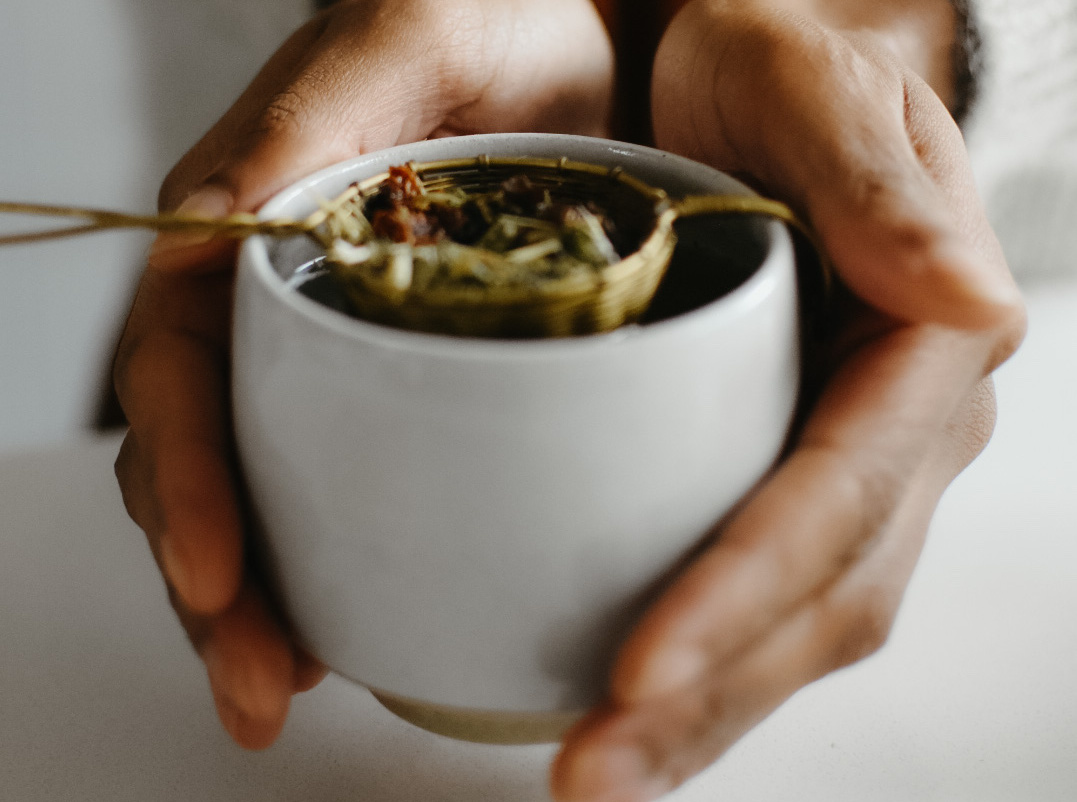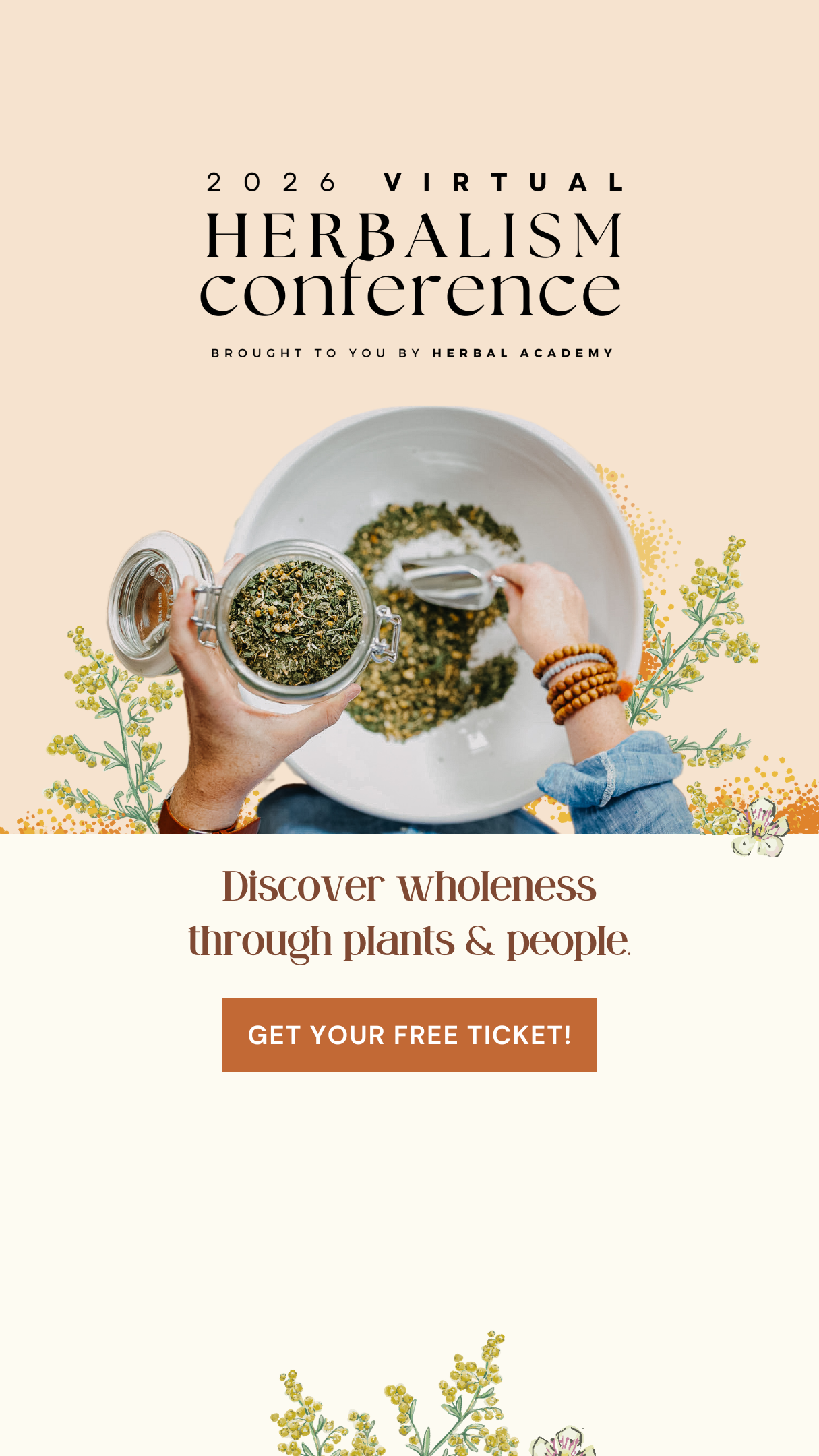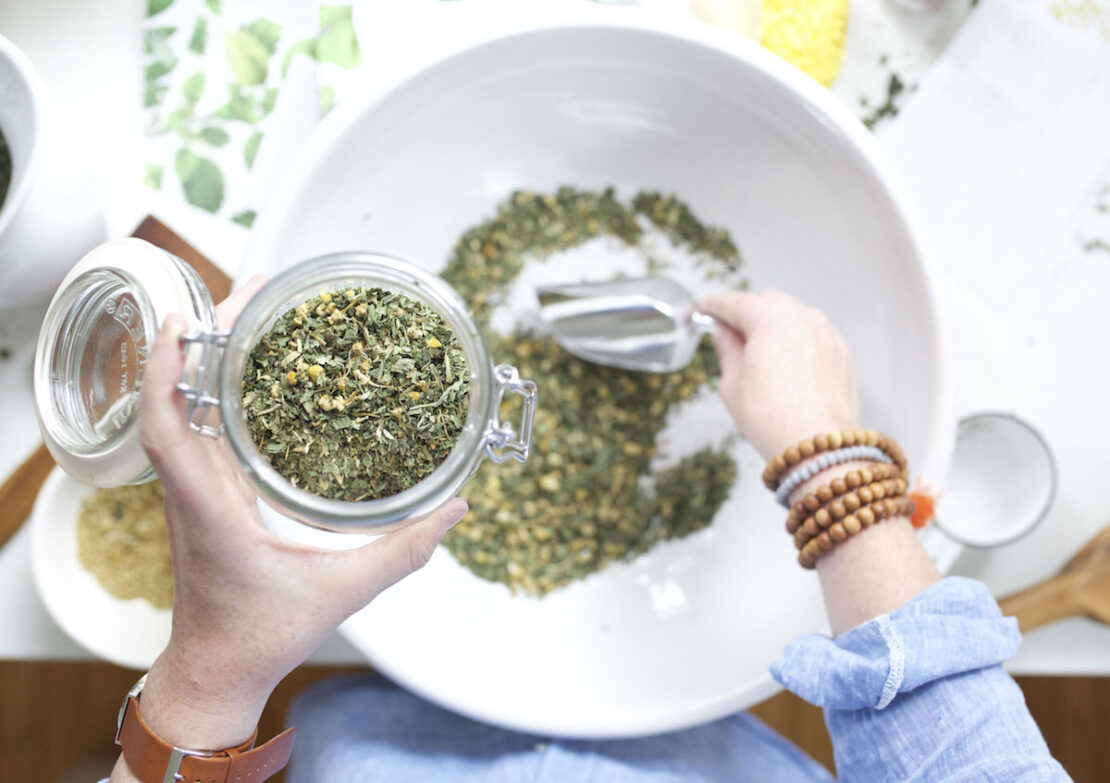
3 Herbal Tea Recipes to Support Fertility, Pregnancy, and Postpartum
Many people are interested in exploring herbs while starting a family but don’t quite know where to begin. Put the kettle on, because these herbal tea recipes are a wonderful delivery method for gentle, nourishing herbs that are safe to consume during pregnancy, lactation, and the postpartum period.
Herbs have helped people on their journey from trying to conceive through postpartum (and beyond) for centuries. Liane Moccia RH(AHG) is a clinical herbalist specializing in fertility, pregnancy, and postpartum, and her recent article in The Herbarium includes a dozen easy, accessible herbal tea recipes to nourish and support you on your parenting journey! In this article excerpt, we’ll share a few of Liane’s favorite tea blends that she relies on regularly to help support clients. All of the herbs in these recipes are dried unless otherwise noted.

Good Morning Liver Blend
The liver is the body’s chemical processing plant and housekeeper. Not only does it metabolize our hormones, but it also removes toxins from the body. A healthy, strong liver and regular bowel movements are crucial to hormonal balance, which helps optimize fertility. Fortunately, we can enlist alterative and tonic herbs to help optimize liver function and support elimination of metabolic waste products and hormones. This first blend of our herbal tea recipes is meant for use during the preconception period.
1 part dandelion (Taraxacum officinale) rootGood Morning Liver Blend
Optimize fertility with the herbs in this herbal blend that support liver function and elimination.
1 part burdock (Arctium lappa) root
½ part nettle (Urtica dioica) leaf
½ part cinnamon (Cinnamomum spp.) bark chips
½ part ginger (Zingiber officinale) rhizome
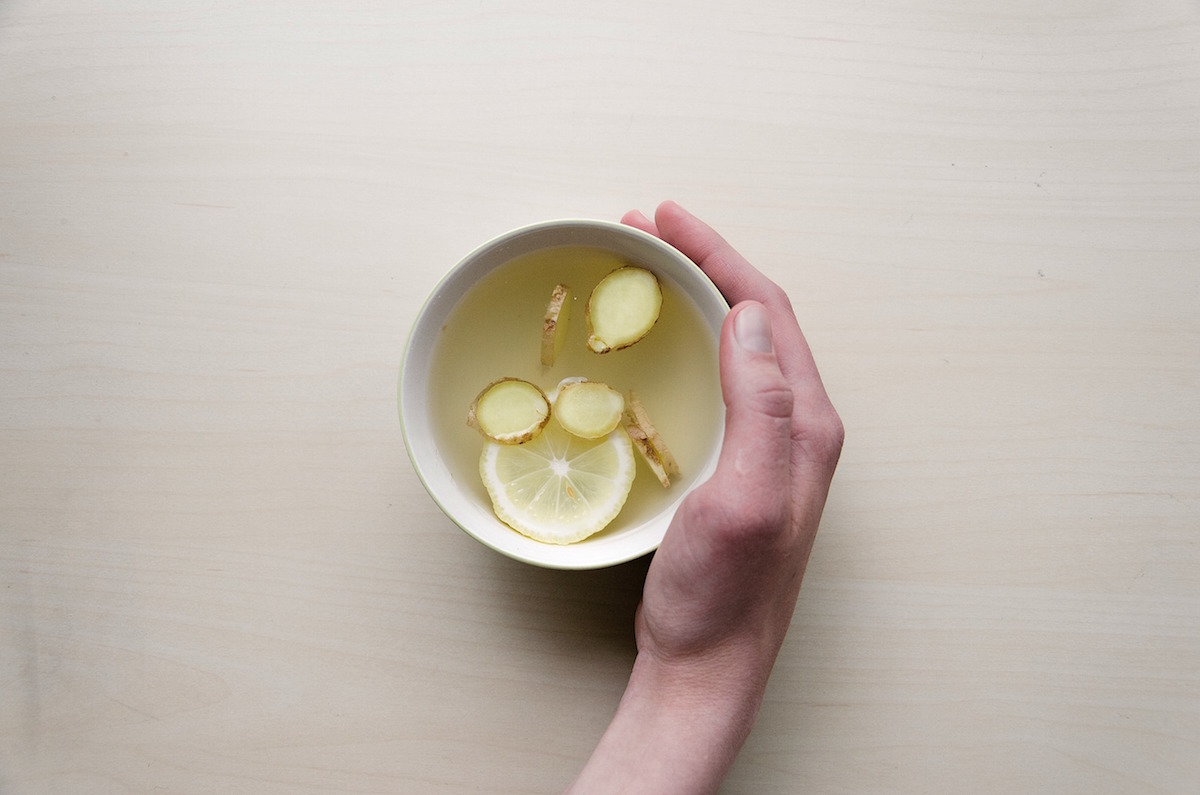
Ginger Lemon Tea
Nausea in the first trimester is one of the most common pregnancy complaints. Ginger (Zingiber officinale) rhizome is well studied for easing nausea and vomiting in pregnancy. It can improve sluggish digestion and gently warm the digestive tract. While modest amounts are considered safe during pregnancy, do not exceed 2 grams of the dried herb per day (Gardner & McGuffin, 2013).
Lemon (Citrus x limon), while usually thought of as a food rather than an herb, also plays an important role in this tea. Many people find the sour flavor can help decrease nausea.
½ teaspoon (0.9 gram) dried ginger (Zingiber officinale) or 1 teaspoon fresh ginger rhizome, chopped or gratedGinger Lemon Tea
Ginger Lemon Tea can ease nausea and vomiting during pregnancy.
Juice from ½ lemon (Citrus x limon)
New Parent Hug in a Mug
During the postpartum time, the body is going through a lot of changes while there are many demands placed upon the new parent, both physically and emotionally. This blend of gentle nervines is designed to help new parents with stress, energy, and mood support during the postpartum period.
2 parts linden (Tilia spp.) aerial partsNew Parent Hug in a Mug
This tea blend helps with stress, energy, and mood support during the postpartum period.
1 part chamomile (Matricaria chamomilla) flower
1 part lemon balm (Melissa officinalis) leaf
¼ part lavender (Lavandula spp.) flower bud
In Closing…Thirsty for More?
Are you a member of The Herbarium? Head on over to the website to check out this offering! You’ll find even more favorite blends to help provide optimal nourishment and liver support while trying to conceive, as well as blends for common issues during pregnancy and postpartum, from constipation and insomnia to lactation support and more!
While you’re there, you can also get started in our intensive, A Holistic Approach to Fertility, where Liane shares her considerable knowledge and expertise on how to support fertility naturally and holistically with nutrition, herbs, supplements, and lifestyle considerations. We have received such a positive response to this intensive—you won’t want to miss it!
For more, see:
7 Foods and Herbs to Add to Your Diet for Postpartum Nourishment + A Nourishing Stew Recipe
How to Make a Nutritive Pregnancy Tea Blend
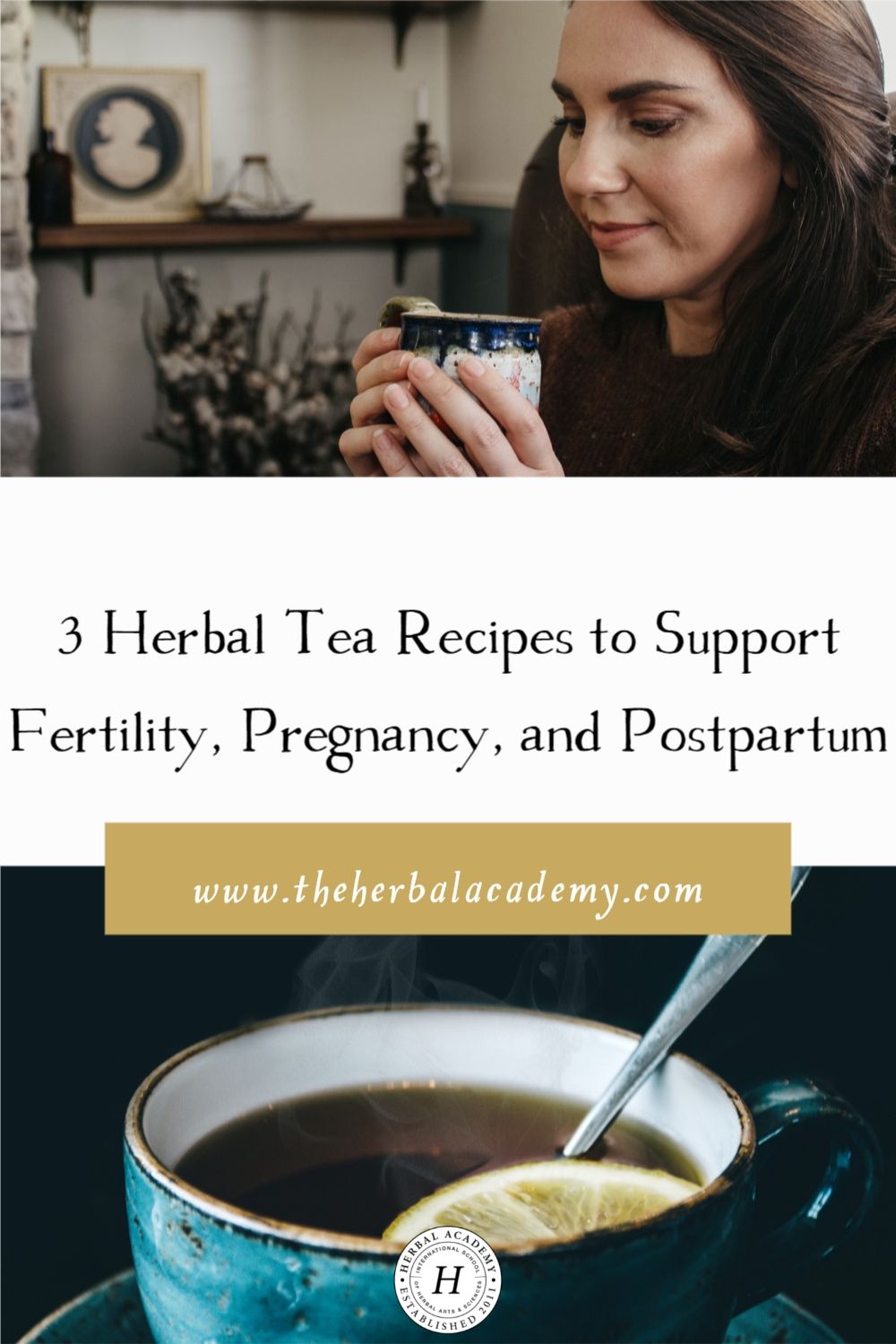
REFERENCES
Gardner, Z., & McGuffin, M. (Eds.). (2013). American Herbal Products Association’s botanical safety handbook (2nd ed.). CRC Press.


